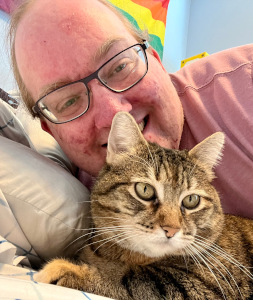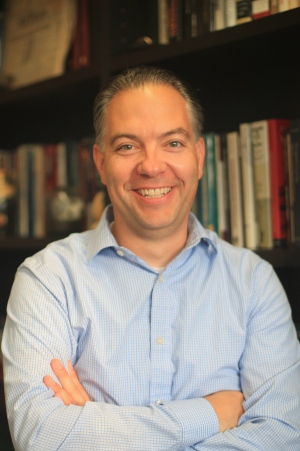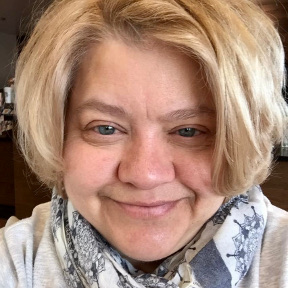Richard S. Price, Associate Professor, Weber State University
Today, I’m a busy and happy associate professor. I research how and why queer literature is suppressed in modern America. I helped co-create the first queer studies program in Utah. I spend time advocating for queer youth in a state that doesn’t particularly like them. I have found a purpose that helps join both my personal and professional identities. Four years ago, however, none of this was true.
In the spring of 2018, I did it. I achieved tenure. I entered that summer excited by this fact. After all, I had landed a teaching-focused job that I loved (on most days) and that allowed me to do whatever research I wanted. It’s a relatively low stress environment that worked for what I liked to do. I settled into my kitchen that May to start working on what I intended to be a law review article. For five weeks I plugged away at it and hit about 55 pages (remember, in the law review world the more words the better).
And then it hit me. I simply didn’t care about the paper. It was fine. I knew I could get it published and that at least a few people would read it. But I didn’t care. I didn’t see the point anymore. That was the last day I ever looked at it. But the problem was broader as I didn’t find anything I had been doing stimulating. It all seemed so abstract—like I was trying to perform the image of what a political scientist was supposed to do. I finally accepted something that had been eating at the back of my mind for a while: I was exhausted by my entire research trajectory, and I didn’t know what to do.
So I did nothing. I don’t mean this in the euphemistic way that many of us joke about on Twitter—doing “nothing” while actually prepping classes or coding research materials. I just shut down professionally and went into a deep, depressive funk. The very thought of research sent me into a tailspin, so it was easier to avoid it altogether. And then one day my partner made a fateful suggestion that I check out young adult (YA) books. After all, I had recently enjoyed the film Love, Simon and figured I could try out the novel. I was hooked.
It’s fair to say that for the next four months I did little else than read YA novels. I won’t try to get into the therapeutic nature of it all, but some element of the genre was just right for what I needed. I was especially drawn to the vast subgenre of queer YA. In the past decade, the publishing world has seen a massive increase in titles about LGBTQ teens living their lives—books often written by LGBTQ adults. These books were a revelation because it gave me a vision of a world I wish I’d had as a teen.
I knew I was queer in high school, but having grown up in the mid-1990s in a school and society dedicated to straightness, I also learned the lesson that queerness was unacceptable. So I boxed it all up and tried to pretend to be straight, leading to a lot of internal discomfort. Queer YA not only gave me a vision of an alternate teen existence but also language I never had for aspects of my queerness: being nonbinary. This revelation went a long way to overcoming that depression. I gradually began to wear my queerness on my sleeve. While I have little doubt this annoys and has pushed away some students (and colleagues, but good riddance to those folks), another population of students expresses a bit of joy at seeing me in front of a class. Nothing is better than introducing myself with pronouns and seeing some student smile shyly because I’m probably the first nonbinary professor/teacher they’ve ever met. It has also led me to push even more queer content into my teaching schedule. I love teaching—one shouldn’t take a teaching focused job if you don’t—but teaching LGBTQ content lets me provide students the material I wish I would have had a lot earlier.
Another revelation was that I could turn my YA interest into research. I knew, thanks to my partner’s librarian training, that books are often challenged in schools and libraries among those seeking to have them removed, restricted, or relocated. This struck me as interesting, and I started firing off public records requests to dozens, then hundreds of institutions. I discovered pretty quickly that queer-inclusive materials are a particular target for book banning and censorship. I became fascinated in understanding why these books are challenged and what danger challengers see in them exactly.
This fascination with book challenges provided a rich vein of research that allowed me to explore queer inclusion within a framework influenced at the outer boundaries by aspects of constitutional doctrine—you can find my first published work on this here. As I did this, with the unfortunate delays caused by the COVID-19 pandemic, I also began to think about the LGBTQ educational activism that helped correct some aspects of the school system that left me traumatized and unhappy. It also gave me a real sense of purpose. I was studying, participating in ways to make our public sphere better for queer kids. For some outdated notions of scholarship, this violates norms of neutrality that makes me, at least partly, an “activist,” and I’m fine with that (I reject the idea of neutrality anyway, but that is a rant for another space).
I’d love to say that I have some generalizable point in here. I guess if anything it is maybe that if your research is not bringing anything to you personally—and I know pre-tenure this is more difficult—drop it. Life is too short to churn out things that you don’t care about just to get a line on your CV. My work has already paid off in various ways, though sometimes in sad ways. When I began researching book bans at the end of 2018, it felt more historical in nature as challenges were becoming less common. Then, in 2021, things exploded with conservatives trying to purge hundreds of books depicting LGBTQ lives, experiences of people of color, and anything “divisive” from schools and libraries.
Suddenly my work, which had primarily been of interest to only a subsection of librarians and free speech advocates, had me receiving calls from newspapers around the country, radio, and podcast hosts. I’ve also been asked to speak to various groups of current and future teachers about how to navigate this controversy. I also write up some of my thoughts for public consumption on a moderately successful blog, Adventures in Censorship, that occasionally offers support to the folks fighting these censorship efforts. The end result, four years after my depressive breakdown, is that I’m busier than I’ve ever been but doing work that I find valuable personally and trying to make the world a better place so that today’s queer teen experience is much better than mine.



